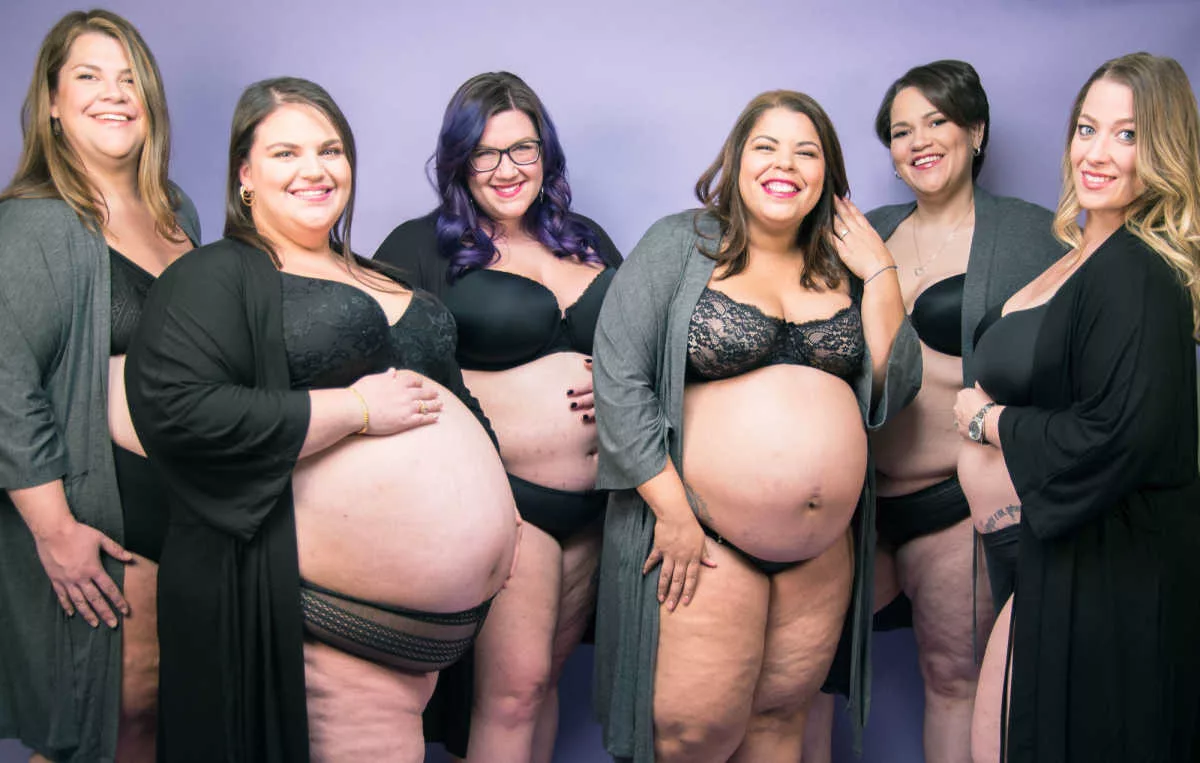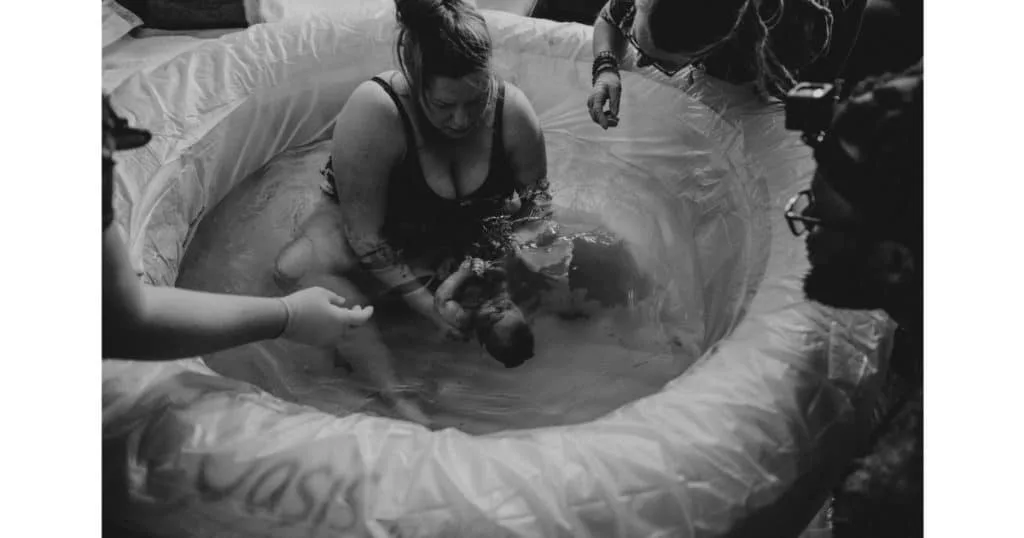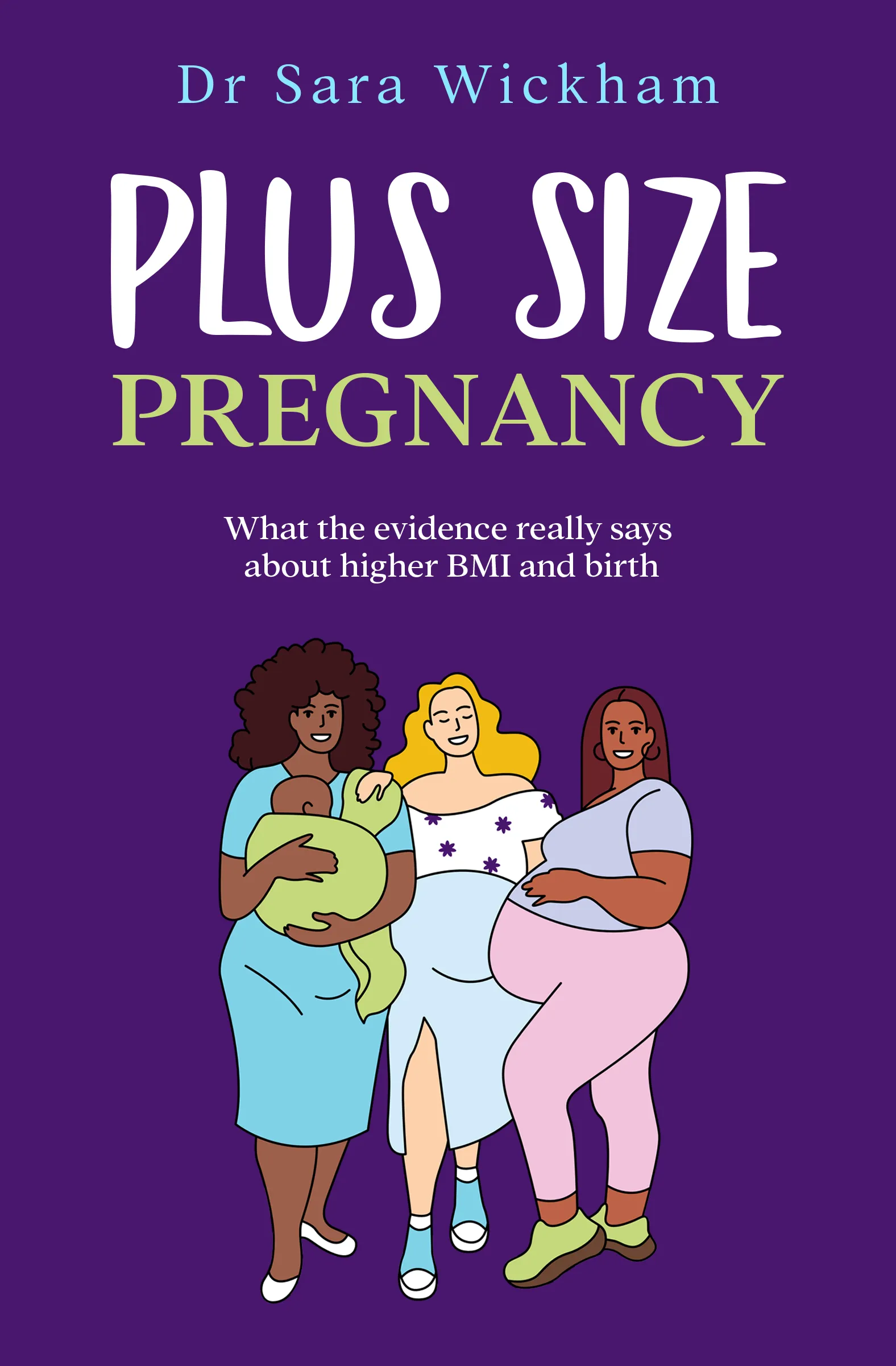
A plus-size pregnancy is typically defined as a pregnancy in which the mother has a Body Mass Index (BMI) of 30 or higher. While the vast majority of plus-size women go on to have healthy pregnancies, it's essential to recognise that this group of women experience a whole layer of barriers and resistance from healthcare professionals that people with a lower BMI do not.

The National Institute for Health and Care Excellence (NICE) provides guidelines on the care and management of women with obesity during pregnancy. These guidelines highlight the importance of personalised care, emphasising the need for tailored advice and support for plus-size pregnant women. Sounds good right? If only that was the experience of plus-size pregnant people.
Plus-size pregnant women often face unique challenges during their journey to motherhood. These challenges can include discriminatory issues that can affect their overall pregnancy experience and health outcomes. Some of these issues include:

Addressing discriminatory issues faced by plus-size pregnant women requires a combination of increased awareness, education, and advocacy efforts. This is where hiring a doula can be useful; they can support you to ensure that your healthcare professionals are providing compassionate and evidence-based care.
Doulas are non-medical professionals who provide emotional, physical, and informational support to expectant mothers before, during, and after childbirth. When it comes to plus-size pregnancy, the role of a doula is particularly important. Here are some ways in which a doula can make a significant difference:
The NICE guidelines acknowledge the potential benefits of doula support during labour and birth. Doulas can be instrumental in providing continuous support throughout labour, which is associated with positive birth outcomes. Continuous support can include comfort measures, emotional support, and the encouragement of informed decision-making.
Cochrane reviews have also explored the impact of continuous support during labour. The reviews suggest that women who receive continuous support are more likely to have spontaneous vaginal births and are less likely to request pain relief or have a cesarean birth.
For plus-size pregnant women, the benefits of continuous support are particularly significant. The emotional and physical support offered by a doula can help mitigate the challenges that may arise during labour and birth.

Doula Near Me members have access to our Resource Library, where they can access a range of evidence to support plus-size clients. In addition, we recommend the book, Plus Size Pregnancy by Dr Sara Wickham for both doulas who are supporting plus-size clients and pregnant people themselves.
Plus-size pregnancy comes with its unique set of challenges and considerations. The evidence-based guidelines from organisations like NICE and the insights from Cochrane reviews underscore the importance of personalised care and support for plus-size pregnant women. Doulas play a crucial role in this equation, providing emotional, physical, and informational support to ensure these women have a positive pregnancy and birth experience.
It's important to recognise that every pregnancy is different, and the needs of each expectant mother are unique. Plus-size pregnant women should be empowered to make informed decisions about their care, with the support of their healthcare providers and the invaluable assistance of doulas.
By understanding the challenges and embracing the supportive role of doulas, we can work together to promote healthier outcomes and empower plus-size women as they embark on the journey to motherhood.